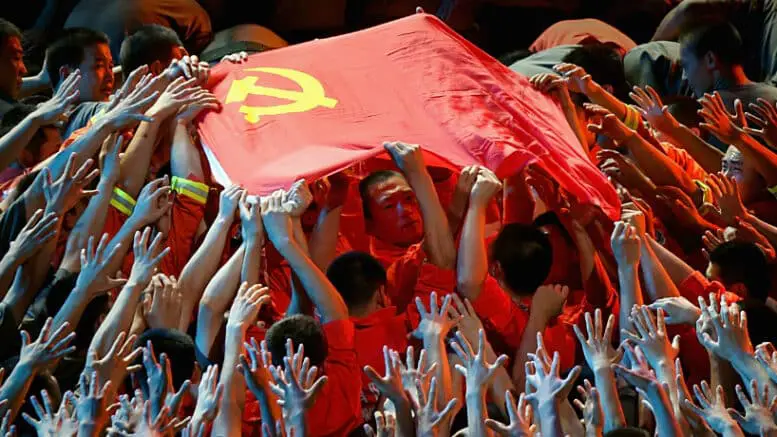On December 3, 2007 I awoke with a hangover, even though I had not imbibed the night before. The evening of December 2 was my single worst election viewing evening, ever, including the victory of Ronald Reagan and the days when Al Gore was still the future President of the United States. Even losing the ERA was not as bad. From my post in Armenia, I watched CNN, EuroNews and the Russian channels. The Russian coverage was worst to watch. The announcers pretended that there was a contest.
From the time when I was a small child up to 1991, I viewed the USSR as an immutable evil presence in my personal life and in the life of the world. It was the authoritarian communist system that had deprived members of my immediate family of life, happiness, and religious freedom, not to mention property and social status. My grandfathers had fled Russia with the White Army, my great-grandmother died from blood poisoning contracted in prison and my grandmother left Russia shortly after being let go from her job for refusing to sign a statement professing atheism. I had expected to die during the Cuban missile crisis, when that communist system threatened the world with nuclear destruction. We prayed for salvation, but I did not expect the system to change in my lifetime.
Then, in the late eighties, there was suddenly hope. The system was crumbling and changing before our eyes. While there was poverty, corrupt privatization, and mass dislocation of Russians trapped in countries that were now no longer welcoming, it was an amazing transformation of a closed society into open chaos. To me the greatest gain was a vigorous free press. When Yeltsin started the Chechen war, he was criticized and mocked mercilessly on the Kukly show, a popular satire that used life-like puppets to poke fun at society and politics on prime-time TV. The free press party lasted about a decade. It stated to end in 2001. As of December 3rd, 2007, for me, it is over.
I never expect to see a free Russia in my lifetime again. The mass media is controlled, the political opposition repressed, and people are forced to vote. Everything is under state control. This may no longer be a communist country, but it is an authoritarian country. What may be the greatest harm is the farcical nature of the doublespeak. The regime claims to be a democracy because it has elections. However, elections are not a magical ritual to engage in for a day. They are based upon a period of information and discussion in the mass media and upon a considered choice. An election without free information is useless, and is worse than no election at all. These are not elections; these are appearances of a dictator in the Coliseum where the people cry their thanks for bread and circuses.
Oil and Freedom
One can arguably map the entire recent history of Russia by the price of oil and the current situation could arguably be different if the price of oil was not going up. The price of crude spiked in 1990 due to the Iraqi invasion of Kuwait and the Gulf War. The 1990s brought improved technology in drilling and production techniques, driving prices back down with increased supply. December 1983 saw a low of $12.43 – as well crises in Soviet domestic and foreign policy. In February 1991, the price was $19.42 and in August 1991 it was $20.48, when the Russian democracy was being born, Yeltsin was struggling to pay pensions, and the people were demanding more. The price remained low throughout the free 1990s and December 1998, in response to the Asian crisis, saw a low of $8.64! However, by the end of 1999, the price of $20 was exceeded again and Putin started his Y2K presidency at $24.11. (For more info see IOGA.com.)
The price of oil has vastly increased since that time, as has Putin’s control of Russia. By November 21, 2007, about the time that the Duma elections were starting, the price reached a high of $99.29/barrel for futures in New York. It remains to be seen if this becomes a long plateau or just a temporary increase. These values are approaching the inflation adjusted maximum of 1980, which was equivalent to a price of circa $95/ barrel in mid 2007 dollars. It is important to consider prices in constant dollars, to see the exact effect on the consumer and the producer.

The effects of politics on oil prices
When considering this table, we see right away that the Soviet Union fell apart when prices were low, that the Russian liquidity crisis of the 1990s coincided with a fall in prices, and that the recent Russian boom is oil driven.
What then of the Duma election? It reflects a government that need not obtain the consent of its people to govern, because it is floating on oil money and need not raise taxes. Every day the Russian news announces a new increase in pensions or a new government program to finance homeowners or some other new social spending. Yeltsin, of course, could not have done any of this; the money was simply not there. Russian people today are happy because they are living better, and since they have no information to the contrary, they think living in a democracy with political choices would mean living in economic and political chaos. The Russian news regularly shows Ukraine as being a shining example of this type of “democracy.” So, Russians prefer the present regime which gives both bread and circuses.

Ukraine has had several years of political crises as the competing parties in its divided Parliament have been unable to build long-term, functioning coalitions. Graph from Der Spiegel.
The price of oil will fall, eventually, as such is the nature of commodity prices. When it does, and if the stabilization fund runs out, the people will be less happy. However, by this time the authoritarian regime will have become entrenched and will not necessarily fall when the price of oil falls. The Soviets dealt with low oil incomes for many years before the harsh fluctuations in prices cracked the USSR’s crumbling economy and thus its political solidarity. Putin can likely blame the west for price manipulations and further entrench himself in the minds of Russians as their one and only savior.
Of the countries of the former Soviet Union, few have maintained democracy. The Baltic countries, who had some popular political institutions in the 1920s, and who have never had significant natural resources, have managed to create societies benefiting from a large degree of freedom. Of the rest, none can truly be called democracies – though nearly all have significant natural resources or are in a position to profit from the transport of those resources.
Ukraine, with its messy post-orange-revolution politics and election, is arguably the only other consistent democracy. Its leaders doggedly insist on resolving differences politically. Georgia is at best a shaky democracy after recent events showed that the state is willing to use force and willing to shut media outlets to silence its opposition. Armenia, which I have seen first hand, has not had a fair election since 1996 according to international observers. The rest of the countries from Kazakhstan to Kyrgyzstan to Belarus, are in the same position.
My personal hangover and rude awakening comes late, I admit it, and with it the realization that what I have thought I was working on – a continued transformation of post-Soviet countries into democratic societies protecting their citizens – is perhaps no longer possible. What then am I doing here in Yerevan?
The author’s opinions, expressed here, are purely their own and not necessarily those of USAID, any USAID-sponsored program, or SRAS.



